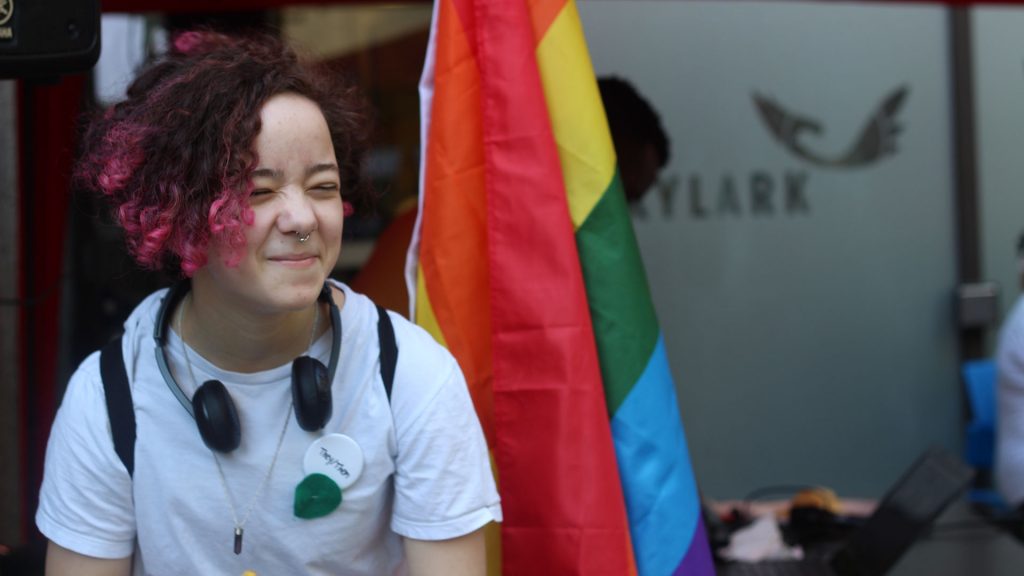Project Insights Report
Lift/Futur en Tête: What Works for Work? Employment Integration in Youth Service Hubs Across Canada
 Executive Summary
Executive Summary
Youth mental health is closely tied to young Canadians’ economic participation. Not only do mental health challenges act as a barrier to entering the labour market and pursuing educational credentials, but youth who are not in employment, education or training (NEET) are at greater risk for declines in mental health. Despite these challenges, many NEET youth are hoping to find support for mental health and connect to meaningful employment or educational opportunities.
Existing services are not designed to meet this need. Employment supports and mental health services are not well integrated and are typically provided by different agencies. Recognizing this gap, youth mental health leaders from the Centre for Addiction and Mental Health, Douglas Mental Health University Institute and University of British Columbia developed Lift/Futur en tête, a program that integrates employment and educational supports into existing mental health services.
Instead of focusing on pre-employment training, as found in traditional employment programs, Lift/Futur en tête used the individual placement and support (IPS) model, where clients are quickly placed in a job and then provided with training and supports to help them remain employed. Project leads implemented the program with a coalition of partner organizations at integrated youth services (IYS) hubs in multiple locations across five provinces.
Key Insights
Participants were broadly satisfied with their experiences in Lift/Futur en tête, with 80% of survey respondents reporting being very or somewhat satisfied.
Lift/Futur en tête was effective in helping youth with mental health and substance use challenges move into employment and/or education and training: the percentage of employed respondents increased from 28% at intake to 67% at the 12-month mark.
Project leads succeeded in building strong relationships with IYS hubs, strengthening each hub’s ability to adapt and deliver the model.
 The Issue
The Issue
The mental health of Canada’s youth is worsening. While this decline has been ongoing since the early 2000s, the proportion of Canadian youth reporting excellent or very good mental health dropped 20% between 2019 and the onset of the pandemic. The COVID-19 pandemic accelerated the decline.
The state of youth mental health is closely tied to young Canadians’ economic participation because mental health is both a risk factor for and outcome of youth being NEET.
Recognizing an opportunity to better integrate employment and education supports, youth mental health leaders from the Centre for Addiction and Mental Health, Douglas Mental Health University Institute and University of British Columbia developed Lift/Futur en tête. The program used the IPS model—where clients are quickly placed in a job and then provided with training and supports to help them remain employed—instead of focusing on pre-employment training, as in traditional employment programs. Project leads implemented the program with a coalition of partner organizations at IYS hubs in multiple locations across Ontario, Quebec, Alberta, New Brunswick and British Columbia.

 What We Investigated
What We Investigated
Lift/Futur en tête administrators delivered the model in more locations to a larger sample of youth to better understand issues around service inequality, access and implementation processes across diverse contexts. The scaling phase included generating evidence on participant outcomes and conducting assessments to determine the fidelity and adaptability of the IPS model across additional Canadian settings. Activities in support of scaling Lift/Futur en tête also involve ongoing work to assess the financial case for IPS within an IYS hub setting and developing an online IPS training system that can be used to establish a core group of youth-focused IPS specialists across Canada.
 What We’re Learning
What We’re Learning
While sample sizes were small, Lift/Futur en tête is showing promising results. Blueprint’s research found that participants were satisfied with their experiences in the program. Most participants found the program useful for finding employment or educational programs and would recommend it to others. Preliminary results also signal that Lift/Futur en tête may be effective in helping youth with mental health and substance use health challenges move into employment and/or education and training.
 Why It Matters
Why It Matters
As the IPS model becomes more established across IYS hubs, and partners become more confident with their delivery, project leads can begin to transition from an emphasis on implementation to a dual focus on implementation and participant outcomes. With more time and experience delivering the model, and as the project progresses, additional effort and resources can be dedicated to weaving data collection into program delivery. Understanding the outcomes the project generates, and for whom, will help project leads further refine and scale IPS across IYS hubs.

State of Skills:
Enhancing Career Prospects and Well-Being for Canadian Youth
Focus on early career guidance programs to introduce youth to a range of career paths, empowering them to make informed decisions with a strong emphasis on inclusivity and accessibility.
Have questions about our work? Do you need access to a report in English or French? Please contact communications@fsc-ccf.ca.
More from FSC
Skills Next Series
Indigenous finance and management professionals: critical for reconciliation and indigenous self-determination
Competency Frameworks and Canada’s Essential Skills
Lift/Futur en Tête: What Works for Work? Employment Integration in Youth Service Hubs Across Canada is funded by the Government of Canada’s Future Skills Program. The opinions and interpretations in this publication are those of the author and do not necessarily reflect those of the Government of Canada.




